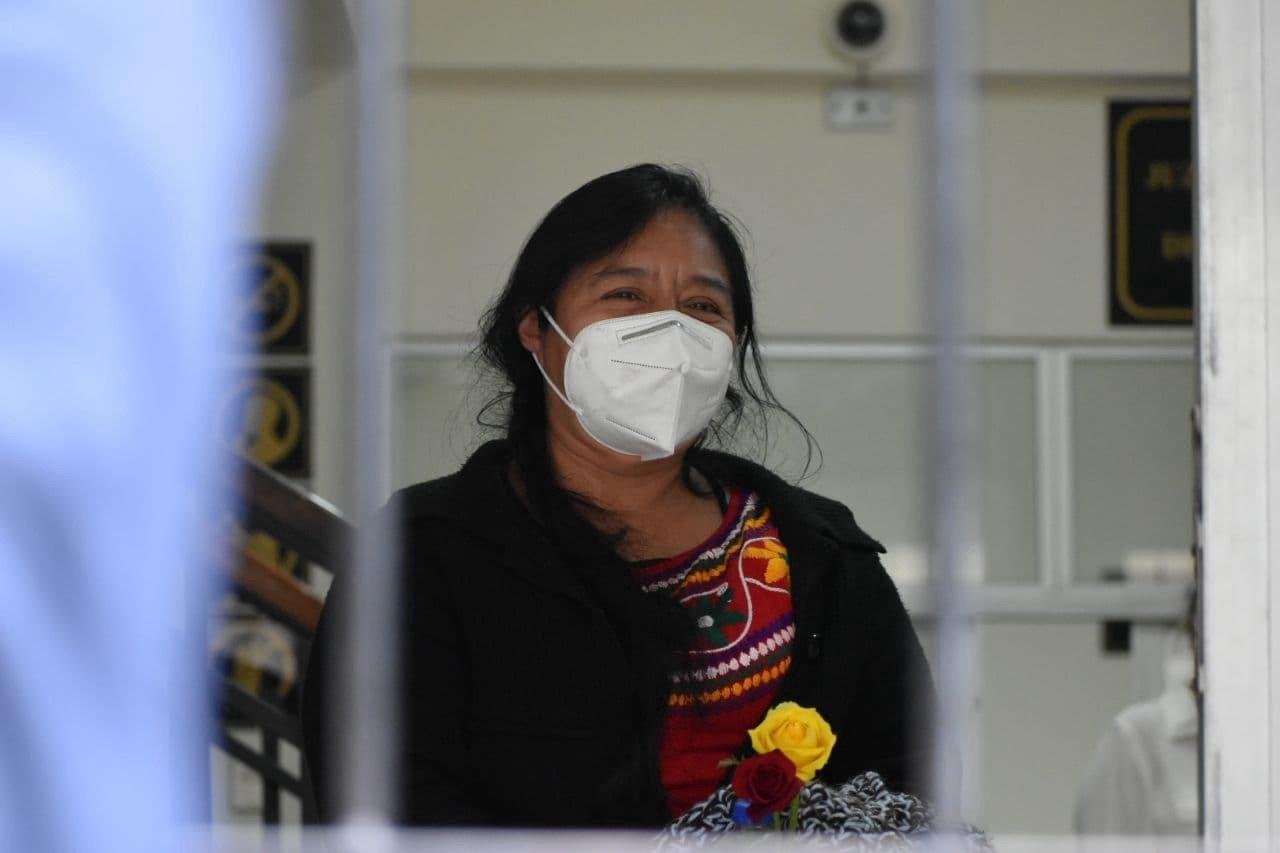Guatemala: 52 signatories call for authorities to drop criminal charges against Indigenous journalist Anastasia Mejía
Update - 3 September 2021
Charges dismissed against indigenous journalist Anastasia Mejía Tiriquiz
On 3 September 2021, a Guatemalan court dismissed sedition charges against indigenous journalist Anastasia Mejía Tiriquiz, who was arrested in September 2020 on charges of participating in demonstrations in the town of Joyabaj, Guatemala. PEN International welcomes the decision and calls on the authorities to respect freedom of information.
The undersigned individuals and organizations call on Guatemalan authorities to immediately drop all criminal charges against Indigenous Guatemalan radio journalist Anastasia Mejía Tiriquiz, who faces a criminal trial after being held in arbitrary pre-trial detention for more than a month.
Guatemalan Civil Police arrested Mejía on 22 September for allegedly participating in a 24 August demonstration by a group of residents in the municipality of Joyabaj, Quiché, in central Guatemala. Mejía, a member of the Maya K’iche’ community and director of the radio station Xol Abaj Radio and Xol Abaj TV, had reported live on the events on Xol Abaj TV’s Facebook page.
She faces charges of sedition and aggravated attack and was held at a detention centre in Quetzaltenango for five weeks after her arrest, exposing her to the additional risk of contracting COVID-19 in the detention facility. Although Guatemalan law establishes that an initial hearing must take place within 24 hours after an individual is arrested, her hearing was set for 8 October, more than two weeks after her arrest. A judge then pushed back the already-overdue hearing to 28 October, to allow for “further investigation of evidence,” and leaving Mejía to spend more than a month in arbitrary pre-trial detention before even a preliminary hearing, putting her health at grave risk amid a global pandemic. On 28 October, a judge released Mejía to house arrest after she paid a $2,500 bond, but ruled the criminal proceedings against her could move forward.
Community media outlets like Xol Abaj play a critical role in ensuring Guatemala’s Indigenous communities can access information, a right guaranteed in the Guatemalan Constitution and protected under Article 13 of the American Convention on Human Rights. The outlet is also an example of inclusivity in journalism: Xol Abaj radio broadcasts in both Spanish and K'iche’, and most of its reporters are women.
While Article 35 of the Guatemalan Constitution guarantees freedom of expression, in practice many Guatemalan journalists contend with systematic censorship and harassment. Guatemala’s rural and Indigenous journalists in particular face greater risk of discrimination and threats from criminal groups and local officials, especially when reporting on topics like land rights, environmental issues or corruption. Community radio stations also face significant barriers in obtaining licenses, leaving many with no choice but to operate unofficially, which exposes their journalists to potential criminal investigations or detention during raids.
Mejía faces serious criminal charges simply for doing her job and keeping her community informed. The disproportionate charges and erratic judicial process seem aimed less at justice than toward intimidating community journalists like Mejia, discouraging them from important reporting on under-documented communities and leading to even greater self-censorship.
The arrest, excessive detention and criminal prosecution of Anastasia Mejía is a clear attack on freedom of expression and the public's right to access information. Journalists are not criminals, and a free press is not dangerous. We call on Guatemalan authorities to drop the outrageous charges against Mejía immediately.
Signatories
Al-Araby Al-Jadeed, United Kingdom
Andrea Carrillo Samayoa, La Cuerda, Guatemala
ARTICLE 19 Oficina para México y Centroamérica
Asociación Cambiando Vidas, Guatemala
Asociación Centro Civitas, Guatemala
Asociación de Periodistas de Guatemala (APG), Guatemala
Dr. Catherine Nolin, Guatemala
Research Group, University of Northern BC, Canada
Ceren İskit, CFWIJ, Turkey
The Coalition For Women In Journalism (CFWIJ)
Committee to Protect Journalists (CPJ)
Damla Tarhan, CFWIJ, Turkey
Daniela García Flores, Guatemala
Derechos Digitales, América Latina
Edgar A. Loarca M., Guatemala
Espacio Público, Venezuela
Free Press Unlimited, The Netherlands
Fundación Datos Protegidos, Chile
Fundación Huaira, Ecuador
Fundamedios, International
Gabriel Wer, Guatemala
Instituto Cubano por la Libertad de Expresión y Prensa (ICLEP), Cuba
Instituto DEMOS, Guatemala
Instituto Prensa y Sociedad (IPYS), Peru
International Federation of Journalists (IFJ) - Latin America, Argentina
International Press Institute, Austria
International Service for Human Rights (ISHR), United States
International Women's Media Foundation (IWMF), United States
James W. Foley Legacy Foundation, United States
Javier Estrada, Periodista independiente, Guatemala
Jenny Rönngren, Feministiskt Perspektiv, Sweden
John Ralston Saul, President Emeritus of PEN International
Julie López, Freelance journalist, Guatemala
Katarzyna Mierzejewska, Engagement Coordinator, CFWIJ, Switzerland
Luis Soto, Guatemala
Mardoqueo Eliezer Vásquez Us, Guatemala
Marta Gomez, United States
Nelton Rivera, Prensa Comunitaria, Guatemala
Observatorio Latinoamericano para la Libertad de Expresión (OLA), Peru
Osmar Eduardo Sarazua Saravia, Guatemala
PEN America, United States
PEN International
Peter Lauterbach, Germany
Pia Flores, Guatemala
Reporters Without Borders (RSF)
Rory Peck Trust, United Kingdom
Samuel Oajaca, Guatemala
Silvia C. Rodriguez, Aim Karem, Guatemala
Silvia Lilian Trujillo, La Cuerda, Guatemala
Stef Arreaga, Periodista Independiente, Guatemala
Taha Siddiqui, Editor-in-Chief, South Asia Press, France
Thelma Aldana, Lawyer and Notary Public, United States
Syria Solidarity UK, United Kingdom

